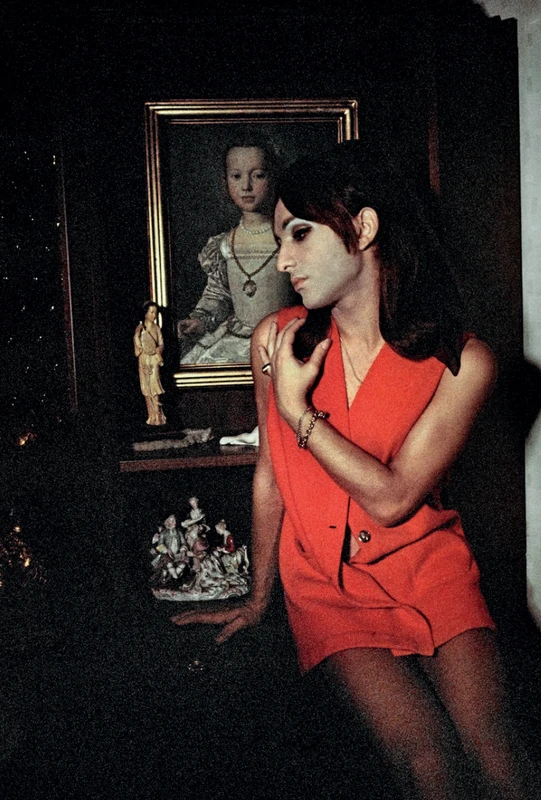Lisetta Carmi


b. 1924, Italy
d. 2022
Born into a middle-class Jewish family, Carmi was forced to leave school as a consequence of the Racial Laws introduced by Italy’s Fascist regime in 1938 and fled to Switzerland with her family. She went on to enjoy a short but successful career as a concert pianist, but in 1960 abruptly changed direction and decided to devote herself to photography.
Carmi is best known for sensitively chronicling the lives of those who belonged to Genoa’s trans community during the 1960s. She stated: ‘[These individuals] (or rather my relationship with them) helped me to accept myself for what I am: a person who does not live according to a role. Observing [them] made me understand how everything that is masculine can also be feminine, and vice versa. Obligatory behavioural models do not exist outside of an authoritarian tradition that is imposed upon us from childhood.’ The photographs she took resulted in a highly controversial volume of images that was published in 1972 and went on to become a cult classic.
Much of Carmi’s photography addressed the social problems associated with labour and experienced by the working classes. The exhibition includes photographs drawn from her studies of the port of Genoa, where she posed as the relative of a docker to photograph the harsh conditions endured by the camalli (labourers). She also documented the city’s Italsider steelworks, highlighting the danger of industrial production, and undertook several visits to Sardinia, where she photographed the first women to be employed in the island’s cork industry. She also visited countries such as Israel, Venezuela, Mexico, India, Afghanistan and giving voice, with her images, to those who had none.